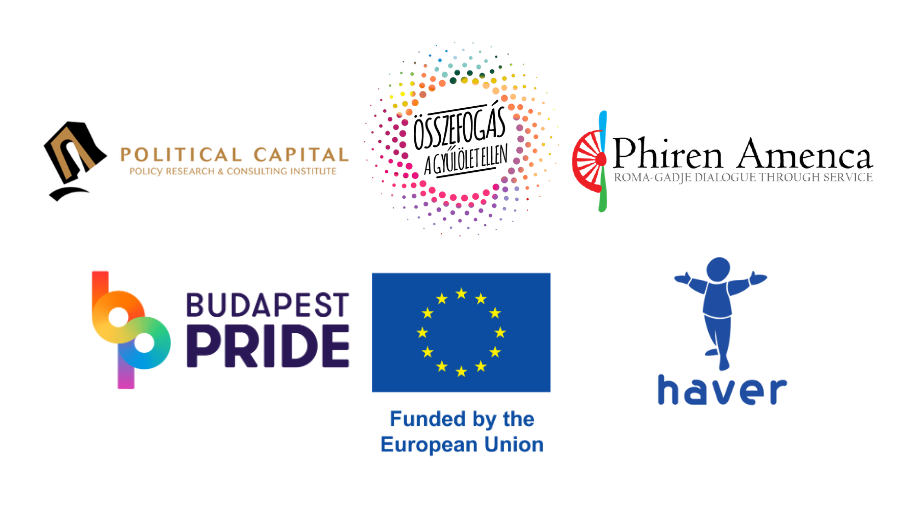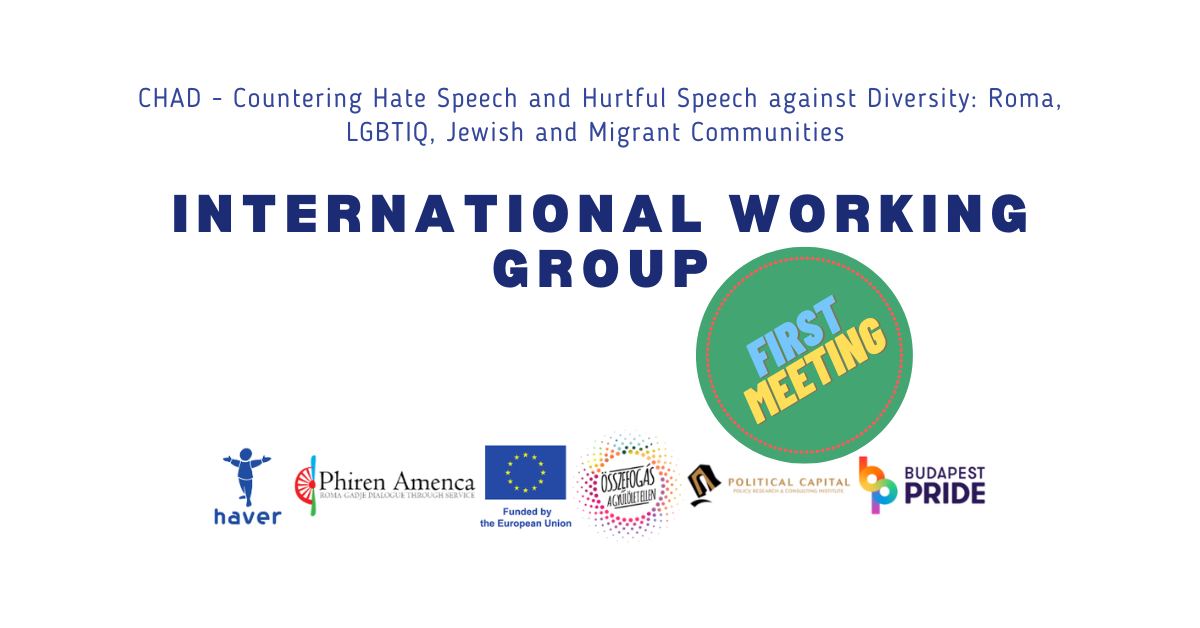September 28, 2022. Online
The international working group was formed in the frame of the CHAD (Countering Hate Speech and Hurtful Speech against Diversity: Roma, LGBTIQ, Jewish and Migrant Communities) project. The CHAD project aims to address intolerance, racism, xenophobia, homo- and transphobia, and discrimination through building the capacities of civil society organisations and their communities in recognising, identifying, monitoring, and combating hate speech and hurtful speech online. The working group will have ten online meetings until March 2024. In the first place, the group aims to facilitate knowledge sharing among European civil society organisations and experts, contributing to a pan-European discussion and advocating for effective means of combating and regulating hate speech and hurtful speech. Moreover, the working group will develop joint position papers about the role of media, decision-makers, influencers and civil society organisations in combatting hate speech, antigypsyism, antisemitism, anti-LGBTQI+ sentiments and xenophobia in Europe.
The working group’s first meeting took place online on 28 September 2022. It was an introductory occasion to get to know each other and the project. Besides, it aimed to discuss the participants’ expectations and possible contributions to the working process.
Seven participants were present in the first meeting, each affiliated with an organization doing work related to hate speech or hate speech monitoring. Among the seven, there were three Polish participants and one each from Serbia, Austria, Ukraine and Hungary.
During the discussion, the participants formulated the following expectations and possible benefits regarding the group process:
- Creating joint papers would be necessary and beneficial, as having tangible things for advocacy work is important.
- As the working group consists of organisations from several European countries, creating a map of hate speech in the EU would be good.
- As more participating organisations work on the same or similar topics, it would be useful to put together their works (on an EU/national level).
- Sharing experiences, practices and tools with each other can be an important part of the working group process, as learning from each other is essential.
- Doing something together would be useful and beneficial for all the participants – the number of future meetings and the time frame provides room for it.
- It would be interesting and useful to discuss how to cope with hate speech and hate crime personally.
- The working group process can be used long-term to create new (intersectional) cooperations between organisations and/or communities.
- The working group could provide support in helping one’s own community. ∙ The working group can be a good occasion to find out how to cooperate in a coalition with a low budget.
- It would be beneficial to use the working group to find tools for advocacy.
In the end, each participant shared how they see their role in and possible contributions to the working group process, which can be concluded in the following points:
- Most participants offered to share their expertise, experiences, practices, methods, and tools on related topics, including monitoring hate speech, presenting the situation in their respective countries, advocacy, media, etc.
- A participant offered to provide training for the working group participants on monitoring and combating hate speech.
- A few participants offered to give presentations on related topics, such as media and advocacy, the situation of hate speech and hate crime in their respective countries, etc.
- More participants offered to invite experts on related topics to channel their expertise into the working group process and gain new knowledge.
- A participant also offered to invite victim groups of hate speech to get to know their experiences as well.

The „CHAD – Countering Hate Speech and Hurtful Speech against Diversity: Roma, LGBTIQ, Jewish and Migrant Communities” project (project nr. 101049309) is funded by the Citizens, Equality, Rights and Values Programme (CERV) of the DG Justice, European Commission and coordinated by RGDTS Nonprofit Llc. in partnership with Haver Informal Educational Foundation, Rainbow Mission Foundation and Political Capital. Views and opinions expressed are however those of the author(s) only and do not necessarily reflect those of the European Union or the Citizens, Equality, Rights and Values Programme. Neither the European Union nor the granting authority can be held responsible for them.


